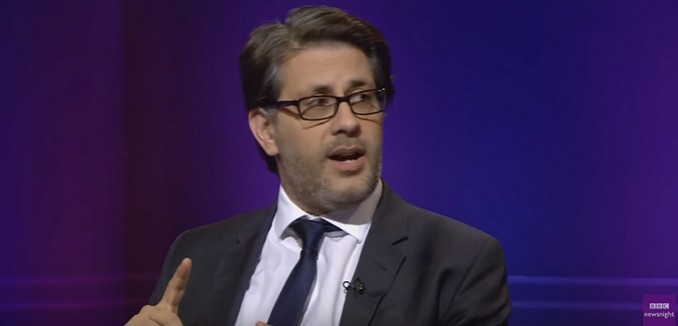Being a British Jew and voting for the Labour Party under party leader Jeremy Corbyn is like being an American Muslim and voting for Donald Trump, former BBC television director Danny Cohen told the Times of London on Saturday.
“If you are Jewish how can you vote for them? How could you?” he asked. “For me it would be like being a Muslim and voting for Donald Trump, how could you do it?”
Cohen also criticized what he saw as the party’s anemic response to anti-Semitism in its ranks. “You have to feel absolutely confident that it is totally unacceptable and it won’t be tolerated and I personally haven’t felt comfortable that it is happening yet in the Labour Party,” he said.
Sadiq Khan, the Labour candidate for mayor of London, said two weeks ago that anti-Semitism in Labour was a “badge of shame” for the party. Prime Minister David Cameron called on Corbyn last month to address the anti-Semitism issue following the resignation of the co-President of the Oxford University Labour Club, who said that members of the club “have some kind of problem with Jews,” as well as reports that most Jewish Labour MPs were on Corbyn’s “enemies list.”
Cohen had previously pointed out the problem of anti-Semitism in Britain in December 2014, telling Israel’s Channel 2, “I’ve never felt so uncomfortable being a Jew in the UK as I’ve felt in the last 12 months.”
Cohen also called attention this week to Western Europe’s Most Powerful Anti-Zionist, an article by Liam Hoare that was published in the October 2015 issue of The Tower Magazine.
Western Europe’s Most Powerful Anti-Zionist https://t.co/dQYVYcmKqK
— Danny Cohen (@DannyCohen) April 17, 2016
In that essay, Hoare observed:
I support the aims and values of the Labour Party and voted for them last May. But if Tonge, Waters, Galloway, and Atzmon are any indication of the sort of person the Labour Party is going to attract under Corbyn’s leadership, it is difficult not to sympathize with writer Nick Cohen’s decision to resign his membership in the British Left. “I realize now what I should have known years ago. The causes I most care about—secularism, freedom of speech, universal human rights—are not their causes,” Cohen wrote in The Spectator. “Whatever they pretend, when the crunch comes, they will always put sectarian unity first, and find reasons to be elsewhere.”
Cohen posited that, under Corbyn, the position of Jews on the British Left will be grim. “To be blunt, the new leader of the opposition is ‘friends’ with men who want them dead. One Jewish Labour supporter told me, ‘I feel like a gay man in the Tory party just after they’ve passed Section 28,’” a reference to a controversial amendment passed under Margaret Thatcher that banned teaching related to homosexuality in schools. “Another described his position as ‘incredibly exposed,’” wrote Cohen. “He had ‘come to understand in the last few weeks, quite how shallow the attachment of the left is to principles which I thought defined it.’”
I do not believe that Jeremy Corbyn is an anti-Semite—although, at the very least, the sheer number of anti-Semitic individuals and organizations with whom he is connected calls his moral judgment into question. His associations show him to have been a bloody fool, an ignorant dope, or someone with a malevolent streak and a rotten core. I do not believe that he will ever be Prime Minister, which, in a sense, limits the damage he can do; damage to community relations between Jews and Muslims, the legitimacy of Israel in British public opinion, or to British foreign policy in the Middle East and elsewhere.
Nevertheless, I cannot suppress my fear that Corbyn’s victory represents the final decoupling of Labour from both Israel and the mainstream of the British Jewish community. It may now be a relationship beyond repair. I worry that Corbyn, unable to see anti-Semitism on the Left or the correlation between anti-Zionism and anti-Semitism, unable to even say the word “Israel” at a Labour Friends of Israel meeting, will not take Jewish concerns seriously; concerns not just over the British political climate regarding Israel, but over security for Jewish individuals and institutions.
[Photo: BBC Newsnight / YouTube ]




